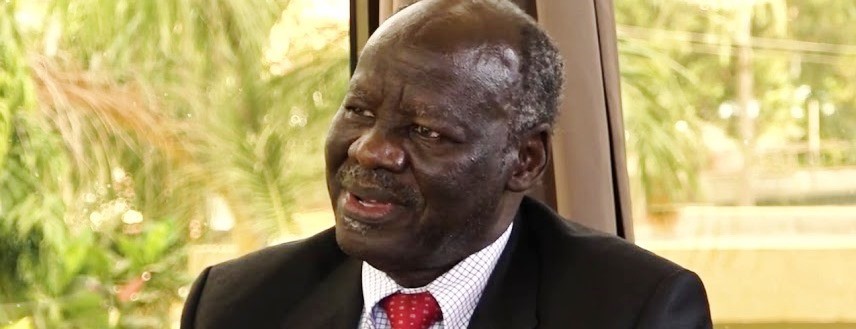National Democratic Movement (NDM) leader Lam Akol said South Africa’s Deputy President David Mabuza has ignored meaningful talks aimed at resolving the issue of the number of states.
Last week, the South African deputy president suggested that the most contentious issue of the number of states and their boundaries by South Sudan's rival parties be subjected to arbitration.
Mabuza, who has been mediating between the government and the opposition over the issue of states, said they have proposed an additional 90 days for the parties to resolve the dispute.
Speaking to Radio Tamazuj on Monday, Akol said significant progress was made last month in which rival parties moved from their original divergent positions towards consensus on two positions, which are 23+1 and 32 states.
Akol’s opposition group is a member of South Sudan Opposition Alliance (SSOA), a coalition of opposition organizations that signed the 2018 peace deal with the government of President Salva Kiir.
“Last month, the opposition groups made compromises and agreed on 23-1 because those states were colonial districts with clear boundaries, so the mediator called off the meeting to carry out further consultations with the government side that was adamant. The arbitration now is completely a new proposal that ignored our initial consensus,” Akol said.
The opposition official has accused Mr. Mabuza of bias towards the government of President Salva Kiir.
“The way the mediator announced the proposed arbitration was strange to us. The mediator announced the new proposal after meeting the president before it could reach the opposition parties,” he said.
“We were expecting the mediator to discuss the responses made by the parties and consider the way forward or find a middle ground in the dispute,” he added.
The opposition politician urged the mediator to come up with a pragmatic middle ground solution to bridge the divergent viewpoints on the issue of states instead of shrugging off the progress made last month.
“We reject any proposal that will go into the transitional period. The peace agreement clearly says outstanding issues should be resolved during the pre-transitional period, so any proposed solution that goes beyond the pre-transitional period is unacceptable,” he stressed.
Akol said the opposition is unhappy with the proposal made last week, criticizing Mabuza for proposing that the unity government be established by the agreed 22 February deadline, while external arbitrators would have 90 days to decide on the contentious issue of the number of states and their boundaries.
“We need states to reconstitute the council of states, so how will the parties create the council of states without states? You cannot form a government without a parliament,” he said.
Akol, a former agriculture minister, accused the government of lacking the political will to make compromises on the number of states and their boundaries.
Last week, the government supported Mabuza’s proposal.
South Sudan had 10 states when it obtained independence from Sudan in 2011. But in 2015 President Salva Kiir unilaterally increased the number to 28 and then later 32. The opposition argues that the constitution and the 2015 peace deal are explicit that South Sudan comprises only 10 states.
The opposition is insisting on a return to the original 10 states, or states based on colonial boundaries.
The rival parties have twice failed to form the unity government, first in May 2019 and then in November the same year, when they agreed to give themselves100 days to resolve disputed issues and form a unity government by 22 February 2020.
Under the terms of the peace deal, the rival parties are to create a unified army to reduce the chances of fighting again and agree on the number of states and their boundaries.




